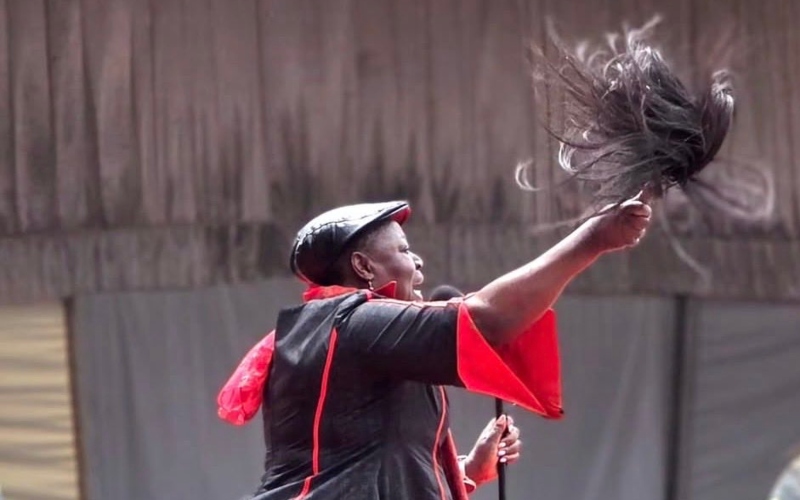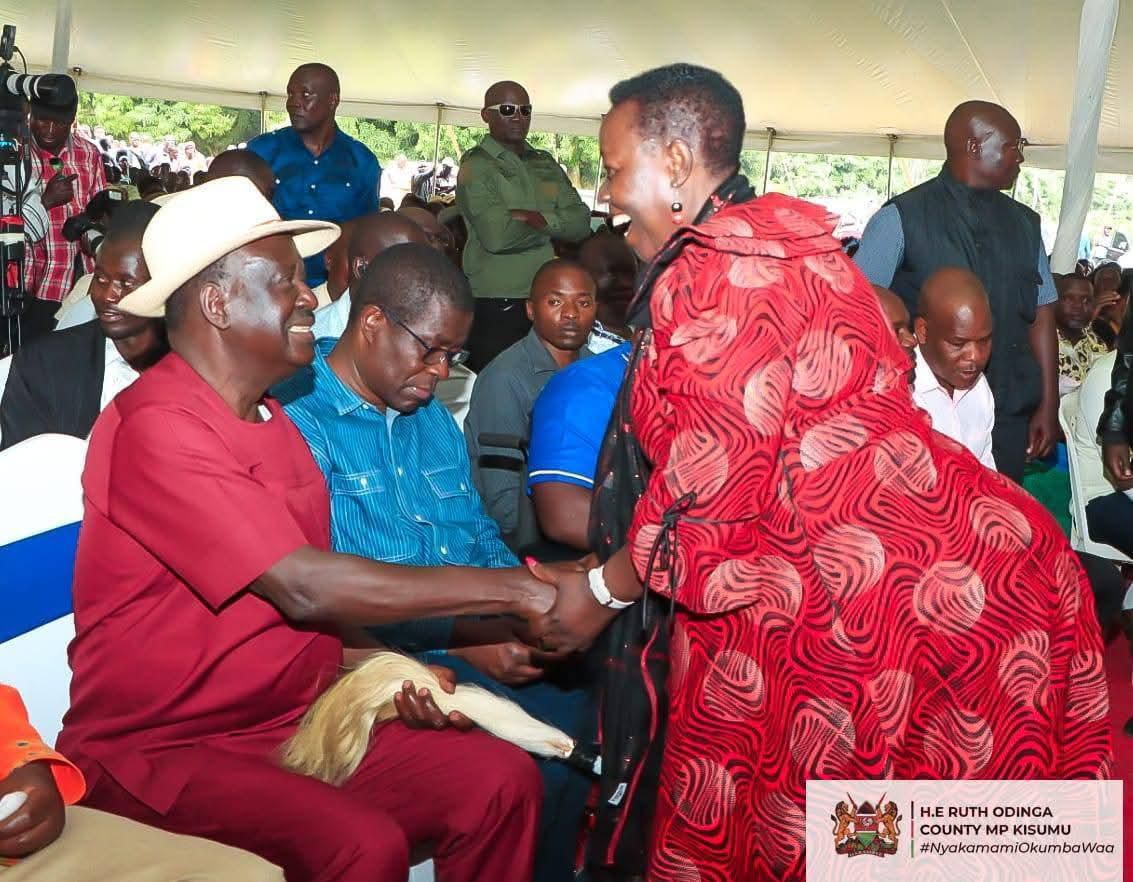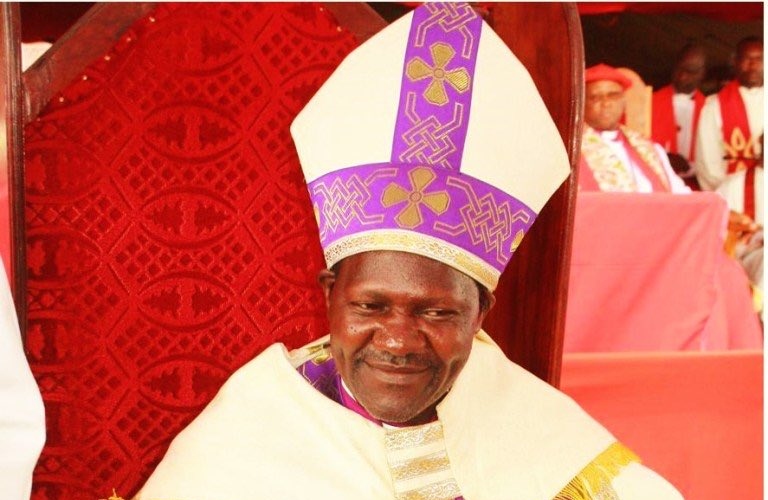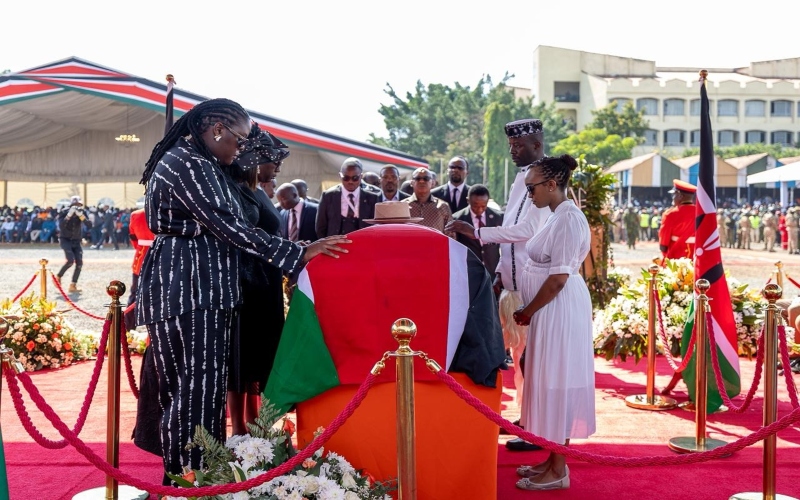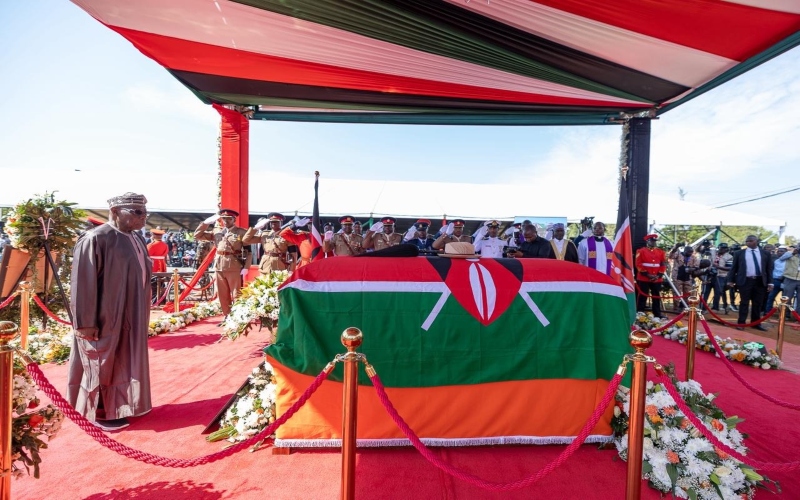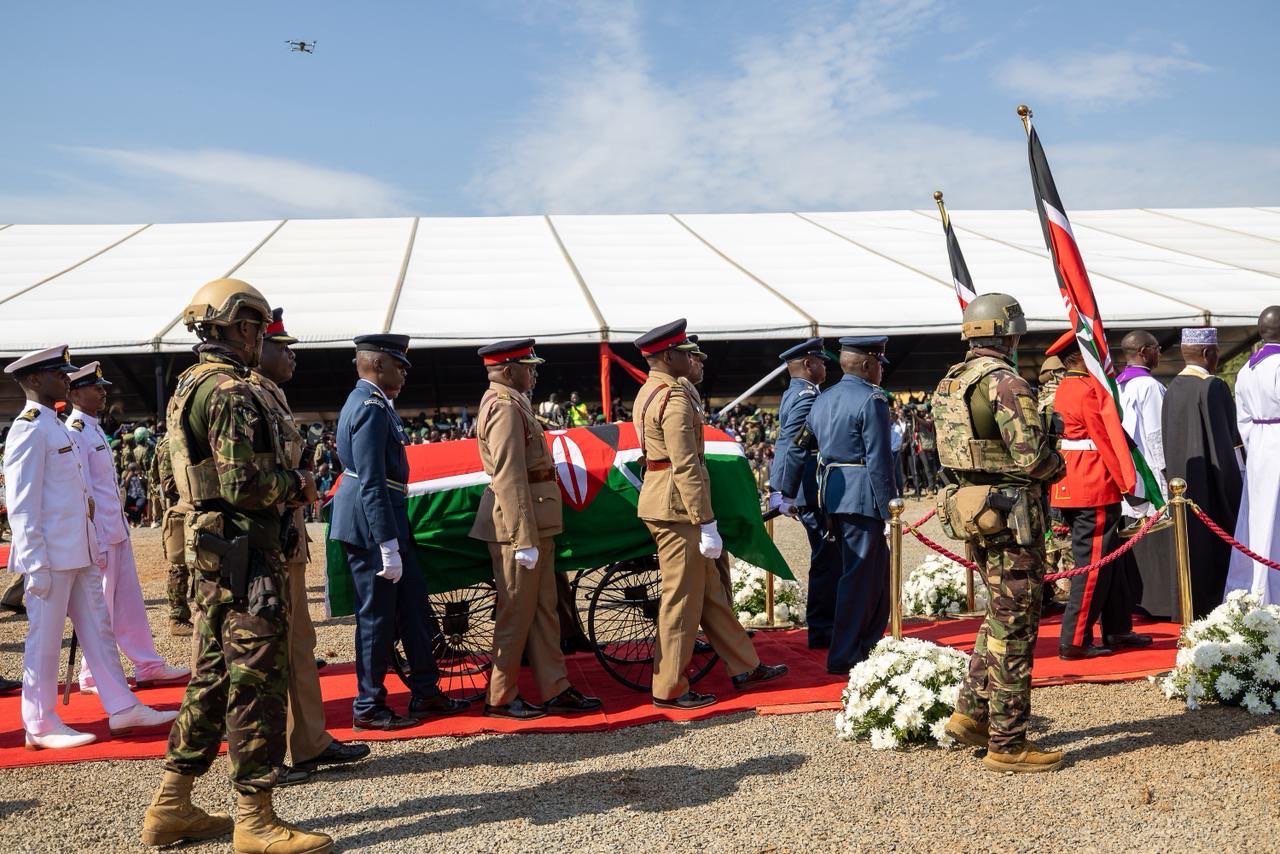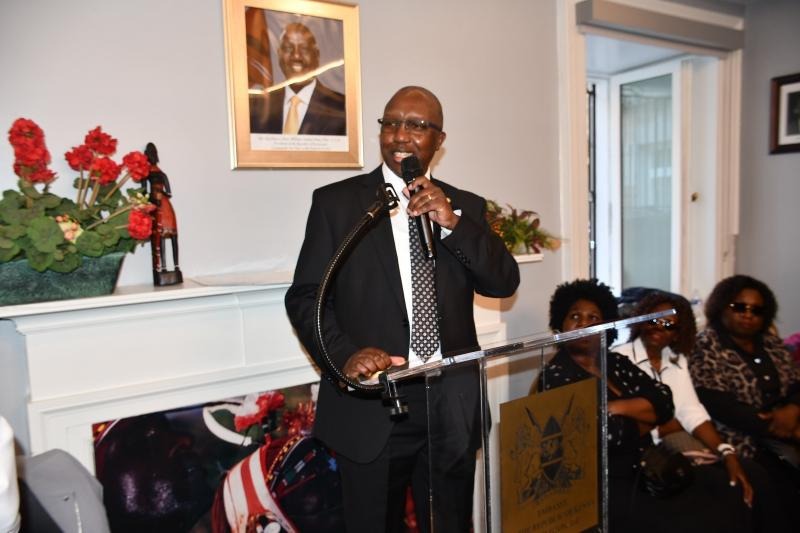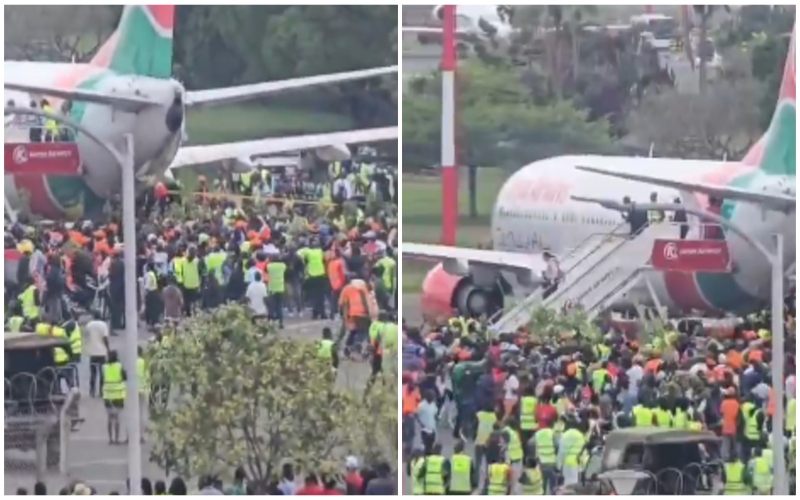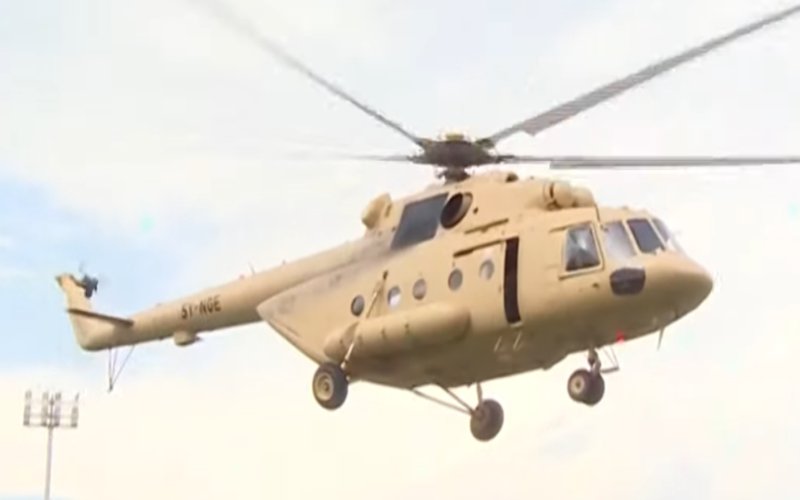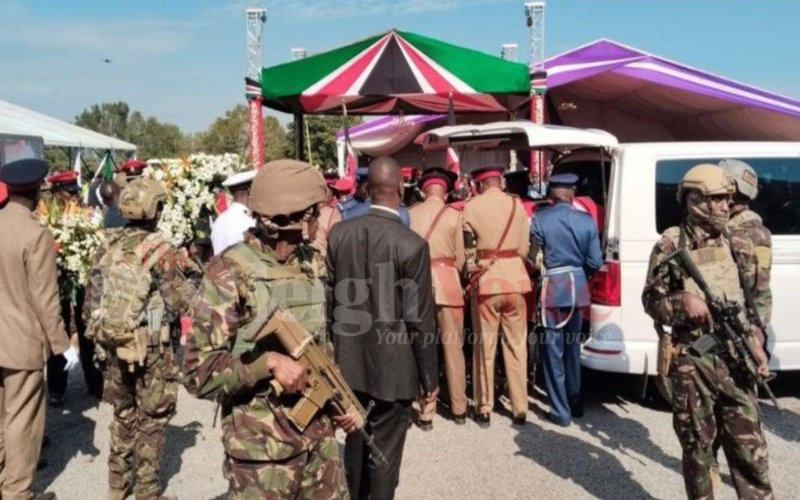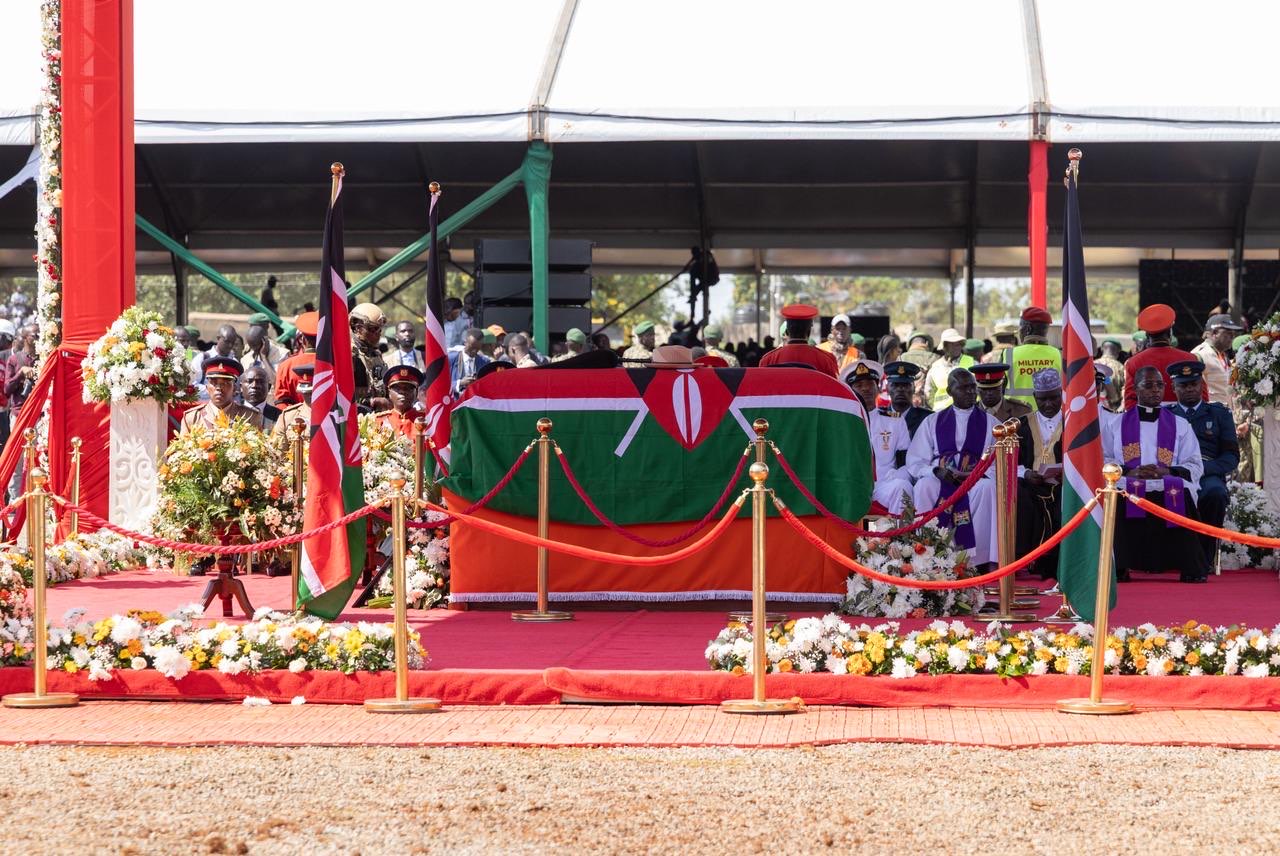Only around 500 mourners will be allowed at Raila’s gravesite for final burial rites - Murkomen
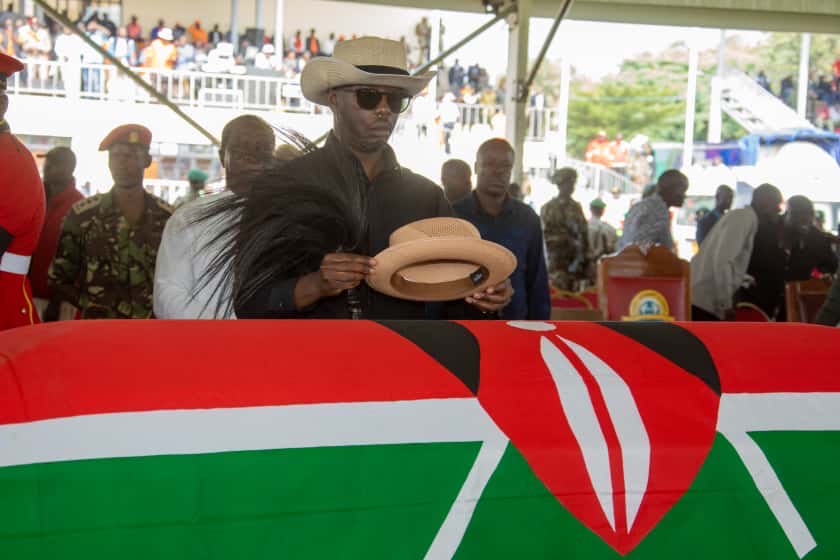
Murkomen said the limit is necessary due to the size of the homestead and to allow the family a solemn and respectful farewell.
At least 500 people will be allowed at the gravesite of former Prime Minister Raila Odinga in Bondo for his final burial rites, Interior Cabinet Secretary Kipchumba Murkomen has revealed.
Speaking on Sunday at Jaramogi Oginga Odinga University of Science and Technology (JOOUST) grounds, where Raila’s last funeral service is expected, he said the limit is necessary due to the size of the homestead and to allow the family a solemn and respectful farewell.
More To Read
- Live blog: Kwaheri Baba, Raila Odinga's final bow
- Ruth Odinga: Raila endured immense suffering for Kenya
- Erokamano Baba: Raila Junior pays moving tribute, reflects on his father’s legacy
- A white priest once refused to baptise Raila Odinga, Bishop David Kodia reveals
- Obasanjo among dignitaries honouring Raila at Bondo funeral service
- Thousands mourn Raila Odinga as body arrives at JOOUST for final farewell
“The homestead is not very big. At most, maybe 500 people can be accommodated. Of course, we have to work with the circumstances and the challenges that arise. Sometimes it is necessary to restrict access to ensure order. Relatives and family members will help make sure that the set numbers are adhered to.
There is something very solemn about the last rite, particularly during the burial itself, which the family must go through as part of their healing process. If it becomes noisy with too many people, they may never experience that solemn moment,” he said.
“I want to urge our people to be sensitive and give the family the space they need to go through the burial.”
An interment service for the late leader is expected to start from 9:00 am at Jaramogi Oginga Odinga University, running until 1:00 pm and will be followed by committal, final prayers and military honours at his gravesite at Kango’Ka Jaramogi in Bondo.
Murkomen said the security sector had worked closely with the public and the Odinga family to ensure that the burial programme proceeds smoothly and peacefully.
He added that strict security and crowd-control measures are in place along the route to Bondo, including around the Odinga residence.
“From the government side, I want to appreciate the security team, the military, the police and the formed units for coming together and putting in place a very important operational plan that has ensured great success so far. With public cooperation, we should be able to go through the process successfully,” he said.
Murkomen described Raila as a selfless leader whose service to the nation went beyond titles.
“We mourn a great Kenyan, a man who truly embodied sacrifice and service to the nation. He led whether he had an office or not. In my younger political career, the former Prime Minister held my hand, placed me in the task force on devolved government, and helped me appreciate devolution. That experience influenced my decision to run for the Senate,” he said.
He added that his relationship with Raila remained cordial even when they were on opposite sides of the political divide.
“Even when he was on the other side of politics, I always had opportunities, whether with President Uhuru Kenyatta or President William Ruto, to engage with him on national assignments. I really cherish those moments,” Murkomen said.
The CS revealed that in Raila’s final days, the two had held several consultations on governance and human rights under the recently established broad-based government framework.
“We had many consultations. He often told me we must improve certain areas, and I learned from him on many issues, including police reforms and dealing with police brutality. I was in meetings where he insisted on having a framework to compensate those who suffered as a result of protests. Both he and President Ruto were firm on this, and our ministry was deeply involved in providing guidance,” he said.
He expressed hope that the government will honour Raila’s wish to compensate victims of past demonstrations.
“One of his wishes was that those who suffered during public protests should be compensated. I really hope that even in his death, this will be fulfilled so that those who suffered consequences from protests can finally get justice,” he said.
Raila, 80, died on Wednesday in India, where he had been receiving medical treatment. Hospital officials in Kochi said he suffered a cardiac arrest.
Top Stories Today
